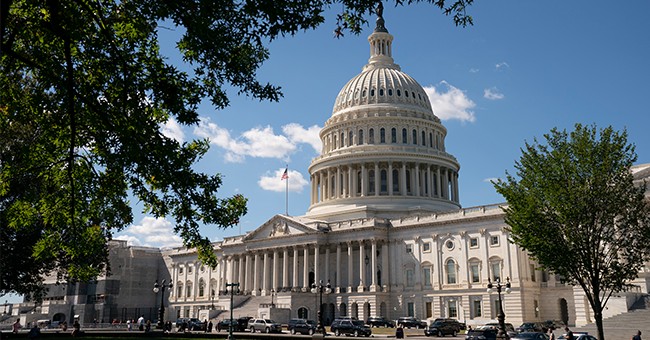
Posted on 06/08/2020 1:41:33 PM PDT by Kaslin

In the aftermath of the passage of the CARES Act, American taxpayers are receiving much-needed assistance from Uncle Sam. Yet even as $1,200 checks from the federal government have made their way into American pockets, they may soon find that some states feel they are in just as desperate a financial situation as the taxpayers they serve are.
Most states have either a legislative or constitutional requirement to maintain a balanced budget, and in practice each state operates as though it is bound by a balanced budget requirement. While this is a good policy to ensure that states budget responsibly, it can create severe restraints in times of unforeseen declines in tax revenue.
And unfortunately for states’ bottom lines, recessions do indeed lead to dips in state tax revenue. State income taxes will of course decline as businesses lose revenue and millions of Americans go on unemployment, but other streams of revenue will likely decrease precipitously due to the specific nature of this recession. Sales tax revenue from businesses that rely on in-person interaction, such as hotels and cinemas, is likely to drop off a cliff, as is gas tax revenue as commuter traffic declines.
And the danger goes beyond your run-of-the-mill prospective tax hike. Desperate state tax bureaucrats can sometimes chase a revenue source they otherwise (mostly) leave alone — the past.
In past recessions, states have used retroactive taxation to gain extra revenue. Retroactive taxation occurs when revenue departments change tax rules for time periods that have already passed, then hold businesses accountable for complying with the new rules. A common form is modifying past tax legislation that governs rules and exemptions to pursue revenue that businesses have been deducting under the old tax structure.
It may sound absurd that state governments would do such a thing, but unfortunately it’s fairly common. Courts often condone the practice when states can point to a significant dip in revenue to justify retroactive tax changes (as often occurs during recessions). Even when they strike down retroactive tax enforcement, it hasn’t established a uniform standard— different courts have approved retroactive changes going back as many as 10 years, or struck down changes going back 16 months as excessive.
Particularly worrisome is the potential for states to seek e-commerce sales tax retroactively, given how dramatically the tax landscape changed just recently and the unique economic circumstances presented by social distancing. Prior to the Supreme Court’s decision in South Dakota v. Wayfair in 2018, states could only require businesses to collect and remit sales taxes on behalf of their customers if they had physical operations within that state.
Wayfair changed that standard, but did not explicitly prohibit states from seeking pre-Wayfair revenue under the new standard. Up to this point, most states have refrained from doing so. Not all, however — Florida, Hawaii, and Alabama all initially aimed to seek retroactive revenue before backing off, and California and South Carolina both sought sales tax revenue retroactively in some form.
And more states could potentially follow should their financial situations become desperate enough. E-commerce businesses may be seen as the healthy cow in a sick herd with social distancing measures in place, or a source of revenue needy states could target.
Taxpayers — and states, for that matter — should beware such shortsighted actions. This will be a lean year, but the entire goal of economic policies in place during this time is to enable the economy to spring back to its prior state once the crisis abates. Hamstringing the framework that enables this return by enacting harmful tax policies, particularly retroactive taxes, would endanger this potential revival.
“...Most states have either a legislative or constitutional requirement to maintain a balanced budget, and in practice each state operates as though it is bound by a balanced budget requirement. While this is a good policy to ensure that states budget responsibly, it can create severe restraints in times of unforeseen declines in tax revenue.
And unfortunately for states’ bottom lines, recessions do indeed lead to dips in state tax revenue.....”
********************************************************
Well, duuuuhh.....that’s why RESPONSIBLE states and localities have RAINY DAY FUNDS.
Only as long as you keep the Commie Dems in office!!!!!!!
We live in an age where the states can issue bonds and the Federal Reserve can buy them.
The “balanced budgets” are just the operating budgets and does not include bonds.
They hope you won’t look behind the curtain.
Disclaimer: Opinions posted on Free Republic are those of the individual posters and do not necessarily represent the opinion of Free Republic or its management. All materials posted herein are protected by copyright law and the exemption for fair use of copyrighted works.